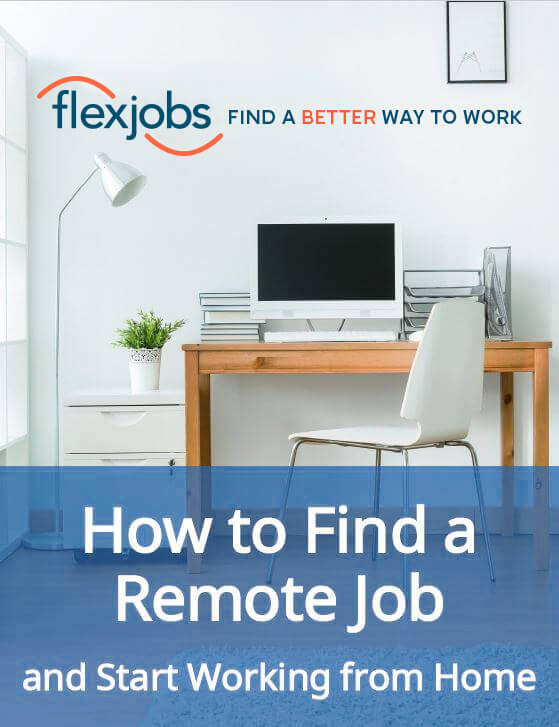
Remote work has had a positive impact in a variety of arenas—work productivity, employer and employee cost savings, work-life balance, and environmental benefits to name a few.
In particular, environmental impacts can make a big difference now and in the future. The United Nations has set 17 goals “as a universal call to action to end poverty, protect the planet, and ensure that all people enjoy peace and prosperity by 2030.”
We’re taking a deeper look at how remote work can affect the environment.
In 2015, the United Nations (UN) released its Sustainable Development Goals (SDG) to “achieve a better and more sustainable future for all.” In total, 17 goals were created by the United Nations Development Program and adopted by 193 countries.
With a target to achieve these goals by 2030, the SDG’s “…are a call for action by all countries—poor, rich and middle-income—to promote prosperity while protecting the planet. They recognize that ending poverty must go hand-in-hand with strategies that build economic growth and address a range of social needs including education, health, social protection, and job opportunities, while tackling climate change and environmental protection.”
Remote work can help meet the goals of the UN. We’re focusing on the third SDG and going over all the ways in which remote work can move the goal closer to completion. Each goal has specific targets: we’re featuring two of those targets that align with remote work.
Goal 3: Ensure healthy lives and promote well-being for all at all ages.

Remote working gives people more time and energy to focus on their diet, exercise, relationships, leisure, and passions—all contributors to better well-being and healthier lives.
According to Mental Health America, mental illness and substance abuse cost employers around $80 to $100 billion. Reducing the friction between work and life can dramatically reduce the stress and anxiety of workers, and help to prevent mental illness from starting or progressing.
Additionally, a study done by Loughborough University in the UK and published in SAGE Journals found that the most important factor for happiness and well-being at work is the ability to work the hours you want to work and having control over your workday.
Workers who are able to have a flexible schedule know the benefits of being able to work when they’re most productive, scheduling work around appointments and kids, and fitting in an afternoon walk if needed. It can improve your mood and your happiness at work and at home.
In a recent survey, FlexJobs asked over 2,000 people how having a more flexible job would impact their health and happiness.
- 91% thought a flexible job would help them take better care of themselves.
- 90% believed it would decrease their levels of stress.
- 61% thought it would increase the frequency they exercised.
- Virtually all—99%—reported that a flexible job would make them a happier person in general.
If flexible work options and a better work-life balance policies were formally available to everyone, it could provide the supportive, mentally healthy workplace environment that we need to help reduce escalating stress levels.
Mikaela, a FlexJobs reader, provides a great example of remote work and healthy living merging together:
“Working environment is key to productivity and health for me. … The benefits of a healthy mind increases productivity, reduces stress, increases the quality of decision-making and problem-solving. There are less distractions than in an office setting and my mind can fully focus. … The quality of my life would increase dramatically with a healthy and happy mind and body, which is why I believe working remotely will highly increase the quality of my work and life.”
Target 3.6: By 2020, halve the number of global deaths and injuries from road traffic accidents.
Approximately 1.35 million people die each year around the world as a result of road traffic crashes. And between 20 and 50 million more people suffer non-fatal injuries.
Remote work can meet this target goal because it lessens or eliminates commutes, taking more cars and people off the roads each day. According to FlexJobs’ “State of Telecommuting in the U.S. Employee Workforce” report, the 3.9 million people who work from home save 7.8 billion miles traveled, avoid 530 million vehicle trips, and reduce traffic accidents costs by $498 million every year. In total, $1.5 billion is saved from telecommuters.
However, Global Workplace Analytics estimates that 56% of employees have remote-compatible jobs and 85% of employees want to work from home at least sometimes. With this additional population working remotely, savings would increase and accidents would decrease even more:
“Half-time telework, for the portion of the population that holds telework-compatible jobs and wants to work from home, would save more than 1,600 lives, prevent almost 99,000 injuries, and save over $12 billion a year in direct and indirect costs associated with traffic accidents.”
Simply put, remote work keeps people off the road and can aid in reducing traffic accident injuries and deaths.
Target 3.9: By 2030, substantially reduce the number of deaths and illnesses from hazardous chemicals and air, water and soil pollution and contamination
Remote work can and does decrease air pollution and contamination.
As of 2017, the amount of greenhouse gases avoided from telecommuters was 3 million tons, which is the equivalent of taking 617,000 cars off the road.
“If the work-at-home workforce expanded to include those who could and wanted to telecommute half of the time, the greenhouse gas savings would equate to taking 10 million cars off the road,” reports FlexJobs’ “State of Telecommuting” report.
Kelli Burns, a FlexJobs reader, provides a great example of how remote work can impact air quality:
“I moved from Nashville, Tennessee, to Salt Lake City, Utah, and had no idea they had an inversion. An inversion is disgusting! It basically means that the warm air traps the pollutants in the cold air, closest to the valley (which is where I live). It stays in the valley until another snow storm blows it out. This can take days or even weeks. The inversion causes me (and everyone else in Salt Lake City) to breath in all these pollutants.
“One of the prime factors of the inversion and pollutants trapped in our air is due to high vehicle emissions. As a current Utah resident, one of the most important things I can do is to be smart and drive less. An inversion can cause serious health problems. It can negatively affect the respiratory system and cause shortness of breath, wheezing, coughing, and irritate lung diseases such as bronchitis and asthma.
“If a person suffers from heart problems, such as coronary artery diseases or congestive heart failure, the pollution can irritate these diseases and cause symptoms to increase or even result in death. A remote job would positively improve the environment in which I live because it would be one less car on the road and less vehicle emissions being trapped in the air. It starts with one person at a time, and maybe I can impact and make a difference in our disgusting air quality.”
Learn More about Remote Work’s Impact on the UN’s SDGs
FlexJobs has a full break down on how remote work can assist with many of the SDGs. Check it out for more details.
READ THE FULL REPORT ON SGD GOALS & REMOTE WORK >>>
Photo Credit: bigstockphoto.com
Don't forget to share this article with friends!

FlexJobs Is SO Much More Than Just a Job Board
In addition to helpful articles like this one, members get unlimited access to:
- Highest Quality Remote & Flexible Jobs
- 200+ Expert Skills Tests
- Soft Skills Courses
- Virtual Job Fairs
- Weekly Career Coach Q&As
- And so much more…

















Vanessa from Rosemount, MN
Just purchased the Monthly plan
Cody from Ventura, CA
Just purchased the 3 - Month plan
Imen from Côte Saint-Luc, Québec
Just purchased the Monthly plan
Matthew from Saginaw, MI
Just purchased the Monthly plan
Ellyn from Sarasota, FL
Just purchased the 3 - Month plan
Catherine from Phoenix, NY
Just purchased the Monthly plan
Amanda from Lafayette, IN
Just purchased the Monthly plan
Kaleiilima from Saint Paul, MN
Just purchased the Monthly plan
Waldemar from Urbach, RLP
Just purchased the Monthly plan
Heather from Santa Cruz, NM
Just purchased the Monthly plan